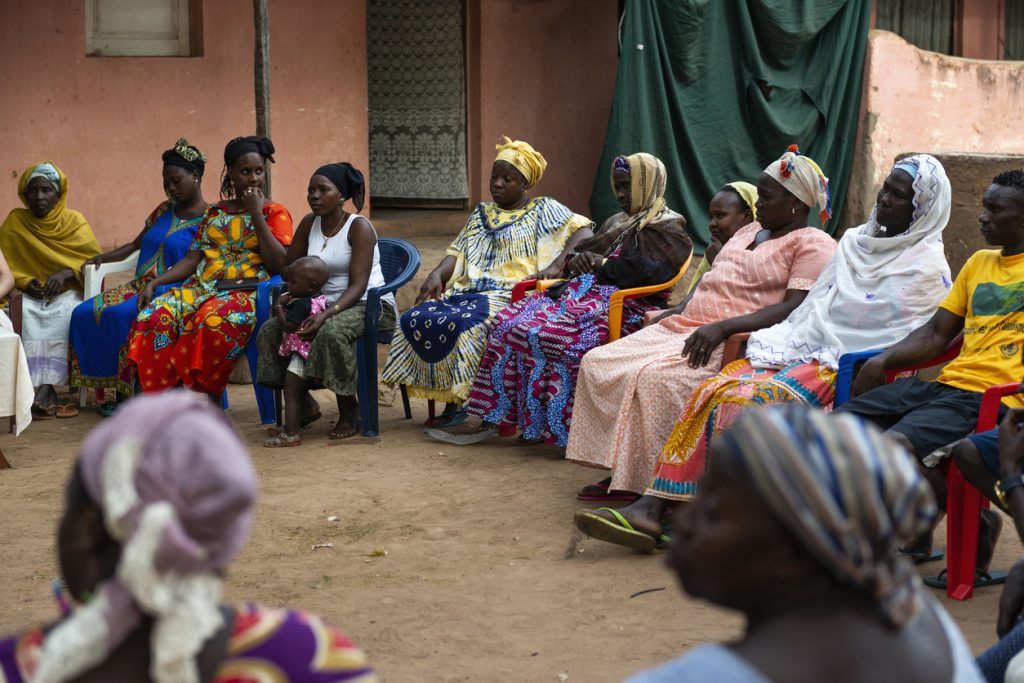By JoAnne Wadsworth, Communications Consultant, G20 Interfaith Forum
– – –
On February 8th, the G20 Interfaith Forum’s Anti-Racism Initiative, in cooperation with the International Academy of Multicultural Cooperation, held a webinar entitled “Ubuntu: Traditional Southern African Philosophy.”
Speakers included Dr. Fainos Mangena, Executive Dean of Arts and Humanities and Professor of Philosophy and Ethics at the University of Zimbabwe; Dr. Remi Alapo, a professor at the City University of New York (CUNY) and Director of the Institute for Peace and Leadership, Inc.; and Arline Woodbury, M.D., a physician, psychiatrist, and activist for underprivileged communities. Isaiah Chabala, Former Ambassador for Zambia to the UN and Founder of Visionary Consulting Associates and Visionary Empowerment, Inc., moderated the discussion.
Chabala began the webinar by welcoming attendees and inviting Dr. Remi Alapo to open the meeting with an interfaith prayer, which invoked a spirit of oneness into the collective space and asked for the help of the spirit of the speakers’ ancestors in their efforts. When Alapo finished, Chabala then gave an overview of Ubuntu, describing it as a traditional African philosophy emphasizing shared humanity, community, generosity and kindness. He said it provides timely guidance on our common humanity.
“We are living at a time when the issue of our humanity is everywhere—questions of ‘what is humanity?’ ‘where is humanity?’ ‘how can we revive humanity?’ are everywhere. So our one key humanity and who we are is a very important question.”
Chabala said Ubuntu can help us affirm our humanity across differences in ethnicity, religion and race. He then invited the speakers to share their thoughts.

Dr. Fainos Mangena
Dr. Fainos Mangena provided an extensive overview of Ubuntu’s core philosophical principles and historical roots in Southern Africa.
He explained that key scholars like Moqobe Ramose, Stanlake Samkange, Martin Prozesky, and Desmond Tutu laid the foundation for understanding Ubuntu as a humanistic philosophy—and for Southern Africans to understand themselves as a people. Ubuntu emphasizes the community over the individual, with qualities like generosity, hospitality, and commitment to the group taking priority over individual interests and achievements.
Mangena traced Ubuntu’s origins to the Bantu languages of sub-Saharan Africa. The term describes the essence of being human in relation to the community. As the Xhosa proverb says: “A person is a person through other persons.”
“We can’t exist in isolation. We need others to affirm out existence and humanity. Another translation says ‘I exist because I belong’—meaning we can’t exist without being part of communities, and when we dehumanize others, we dehumanize ourselves.”
He highlighted Ubuntu’s role in public life and politics in Zimbabwe and South Africa. For example, it enabled reconciliation after apartheid in South Africa through the Truth and Reconciliation Commission. And it brought together conflicting parties in Zimbabwe after the violent 2008 elections.
Overall, Mangena emphasized that Ubuntu transforms social institutions when embraced. Its qualities like empathy, kindness, and compassion provide a guiding light for building community.
He noted that Ubuntu has influenced diverse institutions in Southern Africa, from healthcare to schools, churches, and legal systems. For example, health workers embrace Ubuntu by prioritizing patient interests above their own. And principles of generosity and community shape family structures.
“Ubuntu is Southern Africa’s gift to the world. It has been used as a panacea in our countries and societies. This is what it means to be Southern African.”

Dr. Remi Alapo
Dr. Remi Alapo related the principles of Ubuntu to her recent work on the decolonization of knowledge production in African education systems. She advocated incorporating Ubuntu’s guiding concepts into African education starting at the rural level, teaching children in their mother tongues first to aid in learning speed. She also said using Ubuntu principles could benefit social justice globally, not just in Africa, especially if the principles were taught in conjunction with moral education courses.
“Should all of our education focus on preparing people for industries that cater only to the needs of Europe? There are needs here. Shouldn’t we be taking care of our own collective? If we ‘put our fingers together’ collectively, we can apply the Ubuntu pedagogy to the decolonization of knowledge in Africa.”
Dr. Arline Woodbury
Dr. Arline Woodbury shared some of her experiences as a physician and psychiatrist working in poor New York City neighborhoods. She said she had intuitively embodied Ubuntu during that time, treating patients with dignity and going the extra mile to help them without expecting reward.
“My ancestors have been working on me, and I was doing these things before I knew these terms. I didn’t see myself as above my patients. I lived close to the low income project areas, and I wanted to work together with them as a team to help them, to treat them with dignity.”
Conclusion and Next Steps
In conclusion, Chabala emphasized Ubuntu’s power to affirm shared humanity and enable reconciliation across divisions. He thanked the speakers and announced a March follow-up webinar to further explore Ubuntu’s applications across theology, education, gender roles, and more.
“’I am because we are.’ The ‘we’ there transcends ethnicity, religion, or race. It is a collective human ‘we.’ THAT is the magic of Ubuntu that has enabled us to overcome so much conflict and division. That’s the beginning—our humanity is found in others’ humanity.”
– – –
JoAnne Wadsworth is a Communications Consultant for the G20 Interfaith Association and acting editor of the “Viewpoints” blog.


